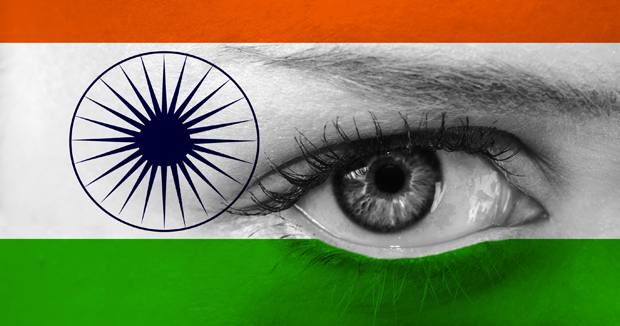
(Photo illustration: Shutterstock)
How does one gauge if some online communication, especially a tweet or a Facebook post, is “of a menacing character”? How does one determine, even with an iota of objectivity, if such communication can be “grossly offensive”, or causes “annoyance and inconvenience” to another person? And, to top it all, what does it say about the reasonability, let alone legal validity, of a statutory provision which imposes criminal liability on anyone caught in its tangle? If only the legality was an issue. For, it could still be fought out in the courts. But when this provision becomes the basis for an alarming number of instances of vigilantism, spiralling into riots, then the repugnancy hits one smack in the face.
So is the case with Section 66A of India’s Information Technology Act, which reads:
66A. Punishment for sending offensive messages through communication service, etc.
Any person who sends, by means of a computer resource or a communication device,—
(a) any information that is grossly offensive or has menacing character; or
(b) any information which he knows to be false, but for the purpose of causing annoyance, inconvenience, danger, obstruction, insult, injury, criminal intimidation, enmity, hatred or ill will, persistently by making use of such computer resource or a communication device, shall be punishable with imprisonment for a term which may extend to three years and with fine.
As reported, Facebook posts are landing people on the wrong side of the law. Meanwhile, it turns out that the arrestee had the cops set upon him because he had dared criticize the chief minister, so Section 66A becomes a tool for vendetta. To make matters worse, “concerned citizens” have started forming vigilante groups to spot such online posts, and bring the offenders to justice. And as it happens in India, to buttress the allegation of “derogatory” or “grossly offensive”, in almost every case, the provisions dealing with the offences of blasphemy or spreading communal hatred are clubbed with Section 66A. If at all something could be blasphemous to the most elementary tenets of freedom of expression, this could qualify as one.
In the city of Pune, someone posts morphed images of revered historical figures and demagogues, and it sets off a communal conflagration and an orgy of vandalism, leading the police to declare that even those who “Like” Facebook posts which could be deemed “offensive” shall be booked.
Section 66A is modeled on the same lines as that of Section 127(1)(a) of UK’s Communication Act, 2003 because both seek to penalise “grossly offensive” online communication. However, the provision in the UK law was “read down” by the House of Lords in 2006, meaning the Court laid down parameters regarding how it was to be interpreted. In Director of Public Prosecutions v. Collins the Court held that the phrase must be construed according to standards of an open and just multi-racial society, and that the words must be judged taking account of their context and all relevant circumstances. The Lords added that “there can be no yardstick of gross offensiveness otherwise than by the application of reasonably enlightened, but not perfectionist, contemporary standards to the particular message sent in its particular context.” That such rulings do not obliterate the vice of such provisions is proved by what by now has attained notoriety as the “Twitter joke trial”. A frustrated Paul Chambers tweeted – “Crap! Robin Hood Airport is closed. You’ve got a week and a bit to get your shit together otherwise I am blowing the airport sky high!!” and all hell broke loose with the authorities mistaking this venting as one of “menacing character” and booking him under terrorism charges. The House of Lords rescued him from the clutches of the law, but not after we were painfully made aware of the perils of ambiguous legal phraseology.
Even though a constitutional challenge to Section 66A is pending before the Supreme Court, the government, instead of following common sense and unwilling to let go of its power to threaten people into silence, issued a set of guidelines in January 2013, apparently to prevent misuse of the provision. These guidelines mandated that only senior policemen could order arrest under this section. This was nothing but a fig leaf to protect an ostensibly unreasonable law, because no safeguards can protect against blatant arbitrariness when there is statutory sanction for the same.
The spate of violence and persecution which threatens to spiral out of control couldn’t have come as a more dire warning to the Indian government- that Sec 66A must be repealed sans further ado, and more criminalization of free speech.
This article was posted on June 16, 2014 at indexoncensorship.org




